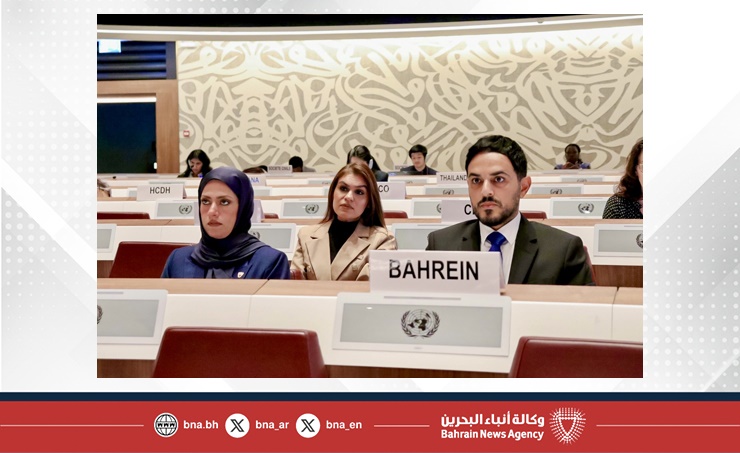RHF participates in 2025 ECOSOC Humanitarian Affairs Segment

Geneva, June 23 (BNA): A delegation from the Royal Humanitarian Foundation (RHF), led by Shaikh Ali bin Khalifa Al Khalifa, RHF Secretary General, participated in the 2025 ECOSOC Humanitarian Affairs Segment, the annual humanitarian segment of the United Nations Economic and Social Council (ECOSOC), held in Geneva alongside the International Humanitarian Affairs Conference. The high-level event was attended by UN member states, UN agencies, international humanitarian organisations, civil society representatives, and the private sector.
Shaikh Ali bin Khalifa underscored that the Kingdom of Bahrain, through RHF’s efforts, embodies the humanitarian values emphasised by the conference. He noted that these efforts follow the directives of His Majesty King Hamad bin Isa Al Khalifa, who has made Bahrain a symbol of tolerance, peace, and a strong example of timely and respectful humanitarian action.
Shaikh Ali bin Khalifa highlighted Bahrain’s ongoing and effective humanitarian efforts, such as providing shelter, food, healthcare, education, and psychological support. He emphasised that Bahrain is not just a donor, but also a committed partner in creating lasting solutions that respect human dignity and encourage self-reliance.
The Secretary General reiterated Bahrain’s commitment to strengthening global solidarity, not only through direct aid but by forging impactful international partnerships that coordinate efforts, anticipate crises, and ensure timely, effective humanitarian assistance.
Shaikh Ali bin Khalifa emphasised that such outcomes are only possible through genuine cooperation among governments, institutions, civil society, and the private sector, an approach Bahrain actively promotes both locally and internationally.
The conference aimed to highlight the need to recalibrate humanitarian efforts for more effective responses to protracted crises, promote local leadership, encourage innovative partnerships between local and international actors, enhance coordination, direct funding to community priorities, and reinforce respect for international humanitarian law, particularly in protecting healthcare workers and medical facilities.





